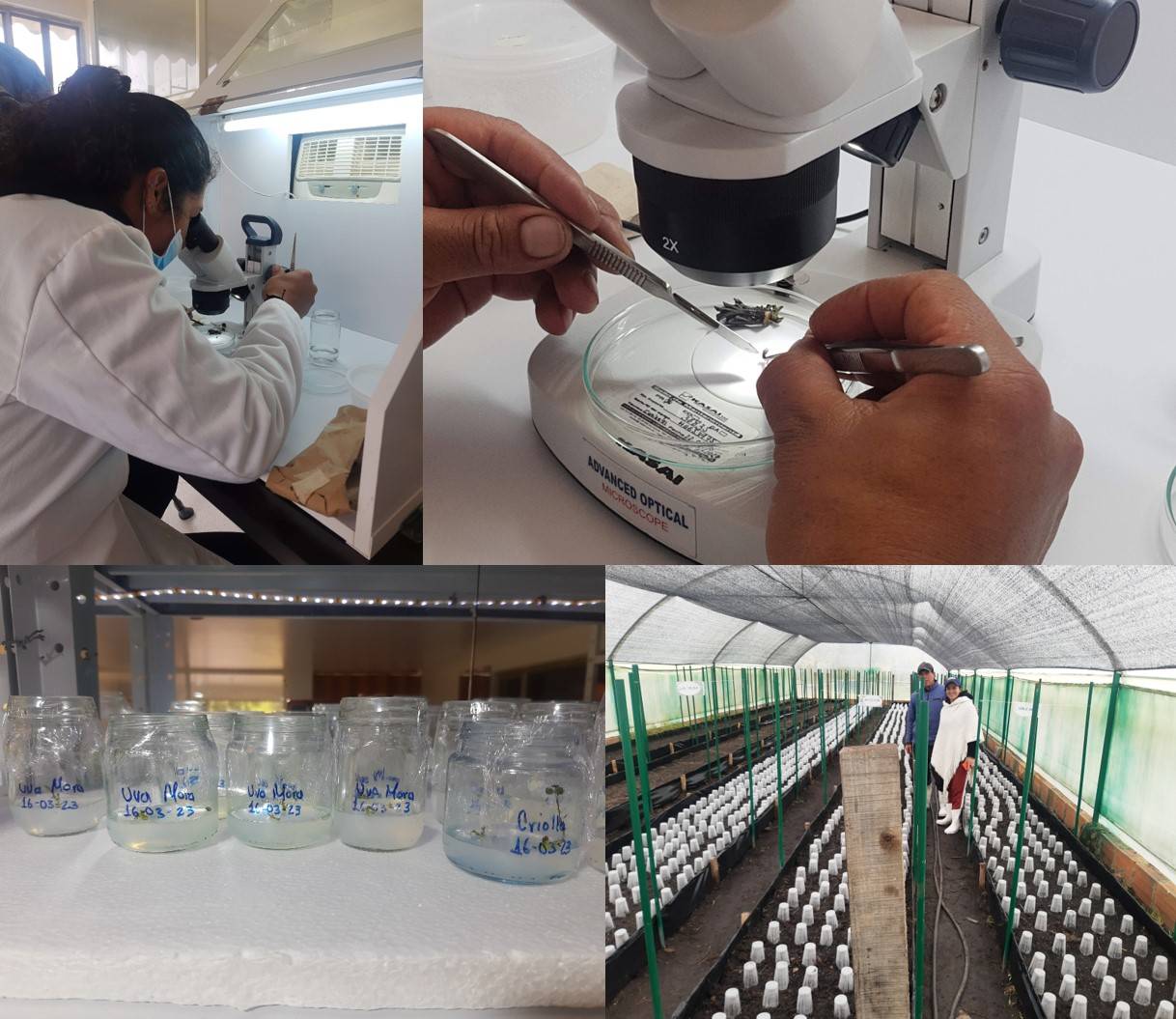In the low-cost pilot laboratory located in the Alizal rural settlement of the municipality of Carmen de Carupa (Colombia), farmers produce seeds of good genetic and phytosanitary quality of native potato varieties

Through the production of mini-tubers, potato seed of good genetic, phytosanitary, phosiological and physical quality is obtained. The use of this seed prevents the proliferation of diseases and pests, which have strong repercussions on the economic and environmental sustainability of the crop.
Under the Root to Food project, mini-tubers of 5 native potato varieties are being produced which have good potential in local markets. These mini-tubers are produced in the low-cost pilot laboratory, located in the Alizal rural settlement of the municipality of Carmen de Carupa (Colombia). All the production of the mini-tubers (from the laboratory to the tunnels) is managed by peasants from the organization Asoagroalizal.
Marcela Pinilla and Consuelo Rincón are two peasant women who, with the support of the Javeriana University and the PBA Corporation, were trained in in in vitro plant tissue culture techniques. Luis Moncada, leader of the organization is in charge of taking care of the plants in the tunnels in order to have a good production of mini-tubers.




